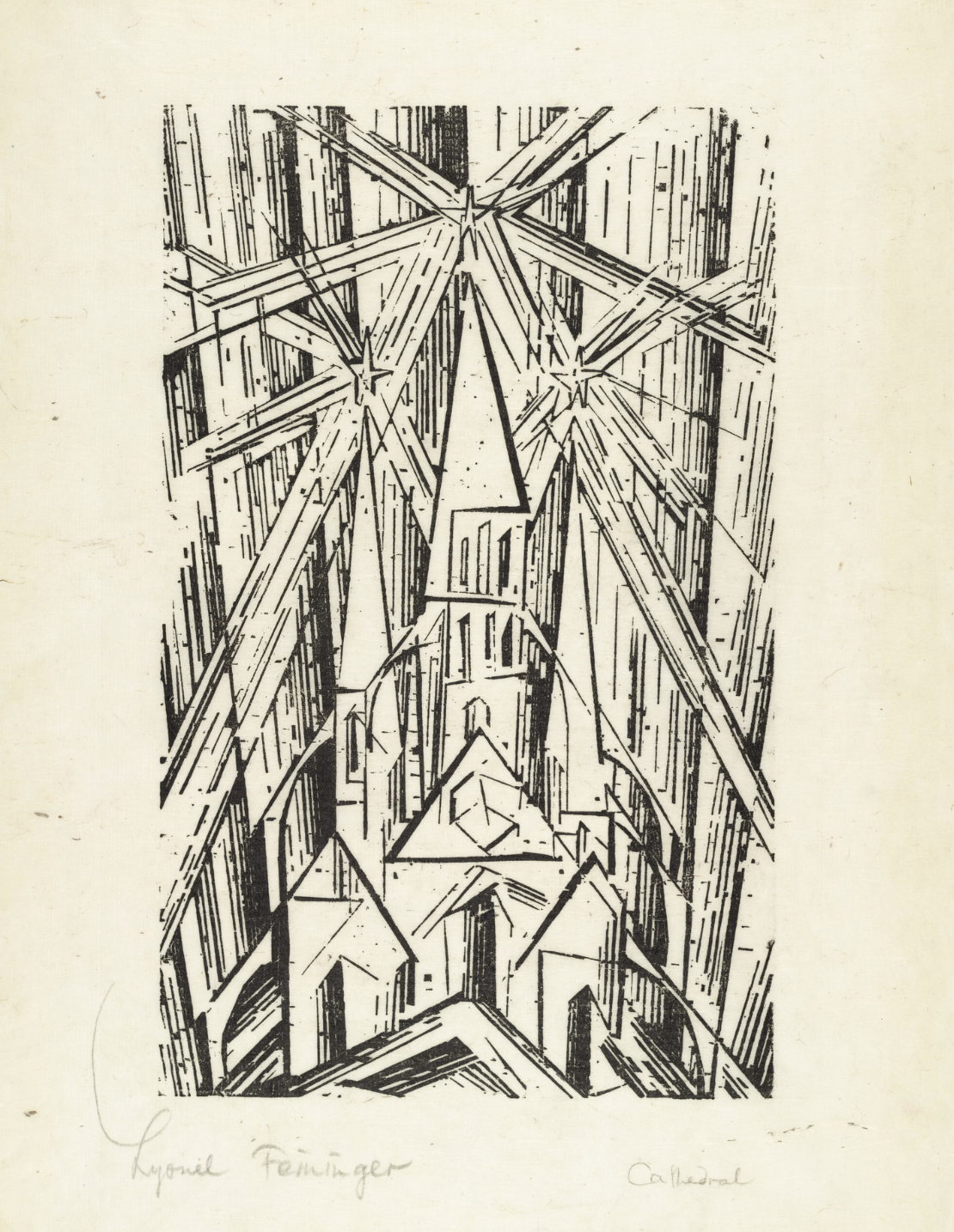PIETER BRUEGEL THE ELDER
Bruegel takes a small parable from the Gospel of Matthew, no more than two lines in most translations, and turns it into a painting that serves as aesthetic masterpiece, political allegory, and medical record. Six blind men follow in a diagonal line, holding onto each other by hand and stick. They walk, accurately, with their heads facing up, relying on other senses to orientate themselves. Each of them has a different affliction that has lost them their sight, ranging from corneal leukoma to a removal of the eyes themselves, and Bruegel paints these conditions with such accuracy that modern doctors can diagnose each figure with ease. The biological accuracy of the figures is but one small element of this painting’s majesty - compositional Bruegel pulls off a masterful trick. Dividing the scene into nine equal parts, where visual and informational conflict exists throughout and angling the entire movement downwards to disorientate us, the result is that when we look at the image, it is very hard to dwell on a single element. We become the blind man being led, our vision blurs and moves the longer we engage with the work until, like the figure leading the pack, we fall into its corners and cannot escape.
PAUL KLEE
In music theory, “Polyphony” refers to the combination of multiple tones or melodies to create a textural sound. Paul Klee was a trained and talented violinist, as well as a radical visual artist of the Bauhaus, and he took his understanding of music theory into the visual realm to create an aesthetic idea of polyphony in painting. The concept needs little explanation that is not provided by Klee’s work itself, and his idea that music was key in creating new, abstract art runs through every element of his painting. Here, in ‘Sunset’, we can see a remarkable visual harmony formed through separate aesthetic, painterly melodies. Abstract, geometric forms, tenderly painted but not altogether gentle in their rigorous shapes, take up the bulk of the compositional weight, set against an ebbing background of soft hues that reveal the artists hand. Above these, fit into the forms, is an intricate pattern of dots that bring a pace, and frenetic energy to the work, while a bright, single colour red sun sits at the base, a small arrow indicating its direction of travel. The work has a natural rhythm to it, each element works in harmony with the next, while retaining an individual visual feeling. Klee creates an orchestra of forms, techniques and colors and conducts them towards a piece of modernist beauty.
CARAVAGGIO
Removed from context or adornment, the viewer becomes part of an intimate exchange. There are few clues as to time or place, the garb is simple, peasant robes, the background is dark and anonymous and the lighting so artificial as to almost seem more real than reality itself. This was the genius of Caravaggio, in this, one of the most important works of the Baroque: an ability to, as he so often did, take religious stories out of antiquity and bring them fiercely into the contemporary world that even five hundred years later they feel modern. Jesus is bathed in light that makes him emerge from the oil and seem almost real as his disciples gather round. Thomas, who had doubted his faith and Christ’s return, proves his finger into the open wound in Christ’s side. It is a tangible display of flesh, and confirmation that the son of God is both man and divine. Yet, this proof materialises in the medium of the painting as well of the subject. Christ as an eternal figure, always relevant, always human, is exemplified in the rich chiaroscuro of Caravaggios brushstrokes - as Thomas’s doubting was allayed by direct contact with flesh, so too is ours by being allowed entry into this scene that feels so tangible.
<div style="padding:59.82% 0 0 0;position:relative;"><iframe src="https://player.vimeo.com/video/1154456989?badge=0&autopause=0&player_id=0&app_id=58479" frameborder="0" allow="autoplay; fullscreen; picture-in-picture; clipboard-write; encrypted-media; web-share" referrerpolicy="strict-origin-when-cross-origin" style="position:absolute;top:0;left:0;width:100%;height:100%;" title="Purple Noon clip 2"></iframe></div><script src="https://player.vimeo.com/api/player.js"></script>
1h 4m
1.14.26
In this clip, Rick speaks with Joseph Nguyen about turning fear into a tool for motivation.
<iframe width="100%" height="265" src="https://clyp.it/uemh44g4/widget?token=b741677e0f8eba9f87233f8dc8217d26" frameborder="0"></iframe>
<div style="padding:75% 0 0 0;position:relative;"><iframe src="https://player.vimeo.com/video/1154454527?badge=0&autopause=0&player_id=0&app_id=58479" frameborder="0" allow="autoplay; fullscreen; picture-in-picture; clipboard-write; encrypted-media; web-share" referrerpolicy="strict-origin-when-cross-origin" style="position:absolute;top:0;left:0;width:100%;height:100%;" title="Firing Line clip 10"></iframe></div><script src="https://player.vimeo.com/api/player.js"></script>
Molly Hankins January 13, 2026
As we begin our co-evolution with AI, questions are being raised from all sectors about the existential implications of this technological quantum leap.







Wednesday 14th January
Biodynamic agriculture works with Rudolf Steiner’s fourfold understanding of the human being. This includes the physical or mineral body, the etheric body — comparable to qi in Chinese medicine as the life force present in plants — and the astral body, which brings qualities of sensation, emotion, and imagination in animals and humans. Human beings alone also possess the Ego or “I”, the unique spiritual core of individuality. This principle of fourfoldness runs throughout Steiner’s work and is also used in anthroposophical medicine, which approaches health holistically. From this perspective, modern medicine focuses mainly on the physical body, while many alternative therapies work with the etheric. Anthroposophical medicine seeks to bring the etheric and astral into greater harmony, supporting integrated human health.
<style>
audio::-webkit-media-controls-timeline {display: yes;}
audio::-webkit-media-controls-current-time-display{display: yes;}
</style>
<audio id='a2' style="height: 5vh; width:100%;" controls="" name="media"><source src="https://clyp.it/qrulosa3.mp3?token=81a1ae986b4259ea837f0eb36415a336" type="audio/mpeg"></audio>